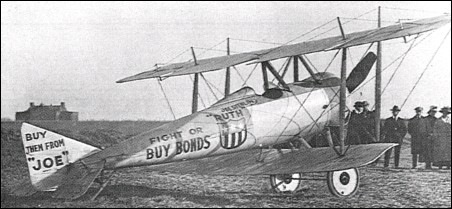|
| In 1916, the brothers Maurice and Emile Berkmans
began design of a single-seat fighter known as the
Speed Scout. Powered by a 100hp Gnome Monosoupape
nine-cylinder rotary engine, the Speed Scout was
of conventional wooden construction but featured a circular-
section laminated monocoque fuselage. Like the
contemporary Curtiss S-2, the Speed Scout employed a
rigidly-anchored cross-axle undercarriage to which a
measure of shock-absorbency was imparted by the use
of Ackermann spring wheels, these featuring curved
spring-steel spokes which served as shock absorbers.
Proposed armament comprised two synchronised 7.62mm machine guns. The fighter commenced
its test programme in the spring of 1918, and
demonstrated a high standard of manoeuvrability and
excellent climb performance, attaining an altitude of
6706m on one occasion, but ground handling
proved poor. The Speed Scout was demonstrated
for the Army Aviation Section, which, having no need for a new single-seat fighter with World War I virtually
at an end, procured the prototype for stress analysis of
the monocoque construction.
 | A three-view drawing (1638 x 1285) |
| WEIGHTS |
| Take-off weight | 540 kg | 1191 lb |
| Empty weight | 372 kg | 820 lb |
| DIMENSIONS |
| Wingspan | 7.92 m | 26 ft 0 in |
| Length | 5.69 m | 19 ft 8 in |
| Height | 2.39 m | 8 ft 10 in |
| PERFORMANCE |
| Max. speed | 185 km/h | 115 mph |
| lxbfYeaa, e-mail, 14.03.2024 06:55 20 reply | | Graham Clayton, e-mail, 13.02.2021 05:28 The "Joe" mentioned on the tail and on the fuselage was Lieutenant Joseph Charles Stehlin (1897-1967), who served with the Lafayette Escadrille during WW1. reply |
|
Do you have any comments?
|
| 
All the World's Rotorcraft |






